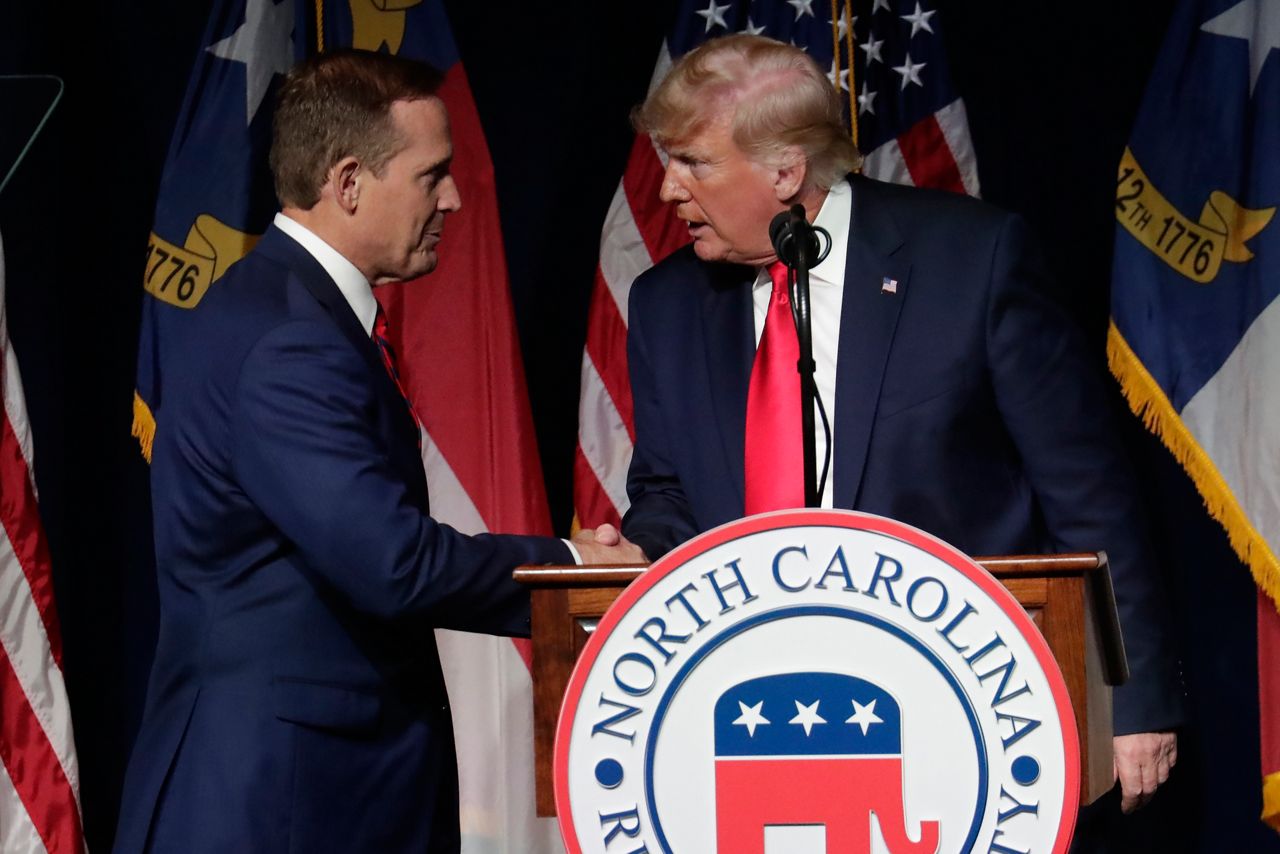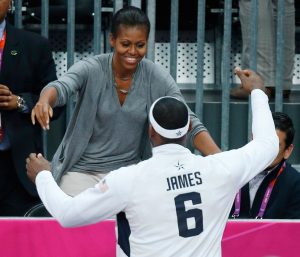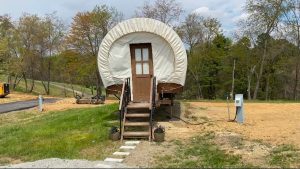In an op-ed for the Charleston Gazette-Mail, West Virginia Sen. Joe Manchin said that he will vote against the For the People Act, the sweeping voting reform legislation, and that he will not vote to kill the filibuster, effectively dooming the prospects of both in the evenly divided Senate.
“I believe that partisan voting legislation will destroy the already weakening binds of our democracy, and for that reason, I will vote against the For the People Act,” the moderate Democrat wrote. “Furthermore, I will not vote to weaken or eliminate the filibuster.”
The For the People Act, which passed in the House in March without a single vote of Republican support, would require states to allow same-day voter registration and automatic voter registration, restrict partisan gerrymandering of Congressional districts, ensure voting rights by restricting voter-roll purges and bring transparency to campaign finance.
The bill is largely seen as a response to restrictive voting measures advancing in Republican-controlled statehouses nationwide. As of May 14, 2021, 389 bills with restrictive provisions have been introduced in 48 states, and 22 bills with restrictive voting provisions have been enacted, according to the Brennan Center for Justice. At least 61 bills are moving through legislatures in 18 states, the Brennan Center notes.
Sen. Manchin is the only Democrat in the Senate to not co-sponsor the bill.
“Democrats in Congress have proposed a sweeping election reform bill called the For the People Act,” Manchin wrote in the op-ed, published Sunday. “This more than 800-page bill has garnered zero Republican support. Why? Are the very Republican senators who voted to impeach Trump because of actions that led to an attack on our democracy unwilling to support actions to strengthen our democracy? Are these same senators, whom many in my party applauded for their courage, now threats to the very democracy we seek to protect?”
“The truth, I would argue, is that voting and election reform that is done in a partisan manner will all but ensure partisan divisions continue to deepen,” he said, adding: “The truth is there is a better way – if we seek to find it together.”
Instead, the West Virginia lawmaker has urged Congress to pass the John Lewis Voting Rights Advancement Act, which would strengthen the protections of the 1965 Voting Rights Act. Manchin believes this could garner bipartisan support in the Senate.
“My Republican colleague, Sen. Lisa Murkowski, has joined me in urging Senate leadership to update and pass this bill through regular order,” Manchin wrote. “I continue to engage with my Republican and Democratic colleagues about the value of the John Lewis Voting Rights Advancement Act and I am encouraged by the desire from both sides to transcend partisan politics and strengthen our democracy by protecting voting rights.”
The bill, Manchin says, “would update the formula states and localities must use to ensure proposed voting laws do not restrict the rights of any particular group or population.”
It is unclear whether it will garner the 10 Republican votes required to overcome the filibuster. Murkowski was the only Republican lawmaker to co-sponsor the legislation when it was introduced last year.
Appearing Sunday on CBS’s “Face the Nation” and on “Fox News Sunday,” Manchin stressed his reasons for opposing the bill, including his view that it is too broad.
“I think it’s the wrong piece of legislation to bring our country together and unite our country and I’m not supporting that because I think it would divide us further,” Manchin said.
He also said he believes Republicans will see the need for a bipartisan deal: “If they think they’re going to win by subverting and oppressing people from voting, they’re going to lose. I assure you they will lose.”
Opponents of the filibuster, including President Joe Biden, have called it a relic of the Jim Crow era, pointing to examples like South Carolina Sen. Strom Thurmond’s 24-hour speech intended to stall the passage of the 1957 Civil Rights Act.
President Biden said in March that the filibuster is “being abused in a gigantic way” and has supported going back to a “talking filibuster,” which would require lawmakers to physically stand on the floor and speak to try and delay or halt legislation.
In March, Senate Minority Leader Mitch McConnell of Kentucky warned of a “completely scorched earth Senate” should Democrats use the so-called “nuclear option” to eliminate the 60-vote threshold and require all bills be passed by a simple majority.
“Let me say this very clearly for all 99 of my colleagues,” he said at the time. “Nobody serving in this chamber can even begin — can even begin — to imagine what a completely scorched earth Senate would look like. None of us have served one minute in a Senate that was completely drained of comity, and this is an institution that requires unanimous consent to turn the lights on before noon.”
McConnell utilized the “nuclear option” in 2017 to eliminate the 60-vote threshold for Supreme Court nominees, clearing the way for former President Donald Trump’s first nominee to the high court, Neil Gorsuch.
“This chaos would not open up an express lane to liberal change,” the Kentucky Republican continued. “It would not open up an express lane for the Biden presidency to speed into the history books. The Senate would be more like a hundred-car pile-up. Nothing moving.”
Illinois Sen. Dick Durbin, the No. 2 Democrat in the Senate, said at the time of McConnell’s threat to shut down the Senate that “he has already done that. He’s proven he can do it, and he will do it again.”
Durbin called the filibuster “mockery of American democracy” and said it has “become the death grip of democracy.”
“The filibuster is still being misused by some senators to block legislation urgently needed and supported by a strong majority of the American people,” he added at the time. “It’s time to change the Senate rules. Stop holding this Senate hostage. We cannot allow misuse of arcane rules to block the will of the American people
Without Manchin’s support for the voting reform bill, it is highly unlikely it will pass — either by the 60-vote filibuster threshold, or even the 50 votes required should Democrats utilize the nuclear option.




